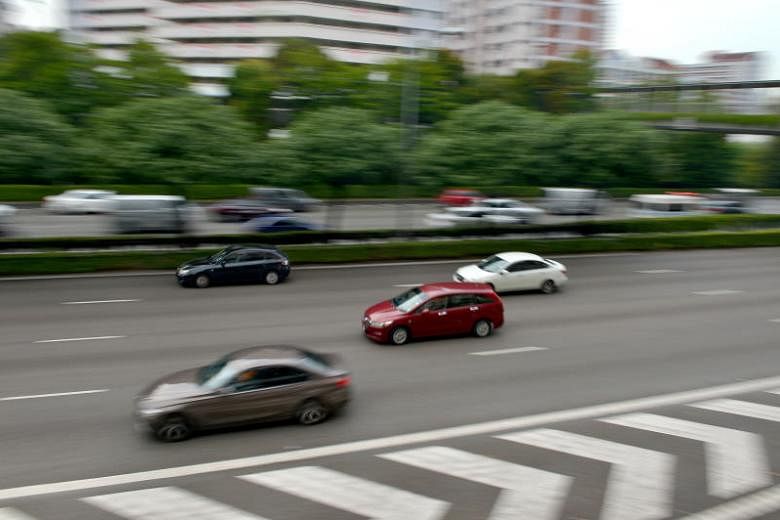SINGAPORE - The number of trips made with private vehicles dropped for the first time in almost two decades in 2016, even as overall travel demand increased, a Land Transport Authority (LTA) survey showed.
According to the latest Household Interview Travel Survey, conducted between 2016 and 2017, overall travel demand increased by 5 per cent to 15.4 million journeys, compared to the survey done in 2012.
Journeys made with buses and trains climbed from 5.5 million trips in 2012 to hit a record high of 6.1 million in 2016, the same year trips made with private vehicles fell for the first time since 1997.
Survey results showed daily trips made with private vehicles hit 4.2 million in 2016, 13 per cent fewer than in 2012, when the figure was 4.8 million, said the LTA.
During that same period, car ownership fell as well, with only 39 per cent of households reporting that they owned a car, down from 46 per cent in 2012.
The LTA, which announced the findings on Friday (Aug 31), said this points to a possible shift, with Singapore residents switching from private vehicles to public transport for their daily commute.
During the morning peak, public transport's share hit 67 per cent in 2016 - up from 63 in 2012.
This puts Singapore "firmly on track to achieving our Land Transport Masterplan 2013 target of having 75 per cent of all journeys during peak hours made using public transport by 2030", the LTA said.

National University of Singapore transport researcher Lee Der-Horng felt, however, that the shift towards public transport is "not significant enough", adding that improvements in public transport - such as the expansion of the MRT network - may not have led many to go car-lite.
"I believe this has largely led to a change of trip distribution instead, for example, from buses to trains," said Dr Lee.
He suggested the new satellite-based electronic road pricing system (ERP 2.0) could be used to "fine-tune" the Republic's congestion pricing policy and further discourage car use.
The survey found daily rail journeys increasing to 2.7 million, up from 2.3 million in 2012, which the LTA attributed to the injection of more trains into the system as well as the expansion of Singapore's rail network.
Sales and marketing executive Peter Lim said he chose to buy his Bukit Panjang flat because it was near the MRT station, though he notes not all places are easily accessible.
For example, his office in Tuas takes one-and-a-half hours to get to by public transport, though he works largely from home.
"Mostly I will take GrabHitch, which is fairly affordable and takes about 40 minutes," said Mr Lim, 29.
The number of journeys taken by bus also grew, from 3.2 million in 2012 to 3.4 million in 2016.
More people are also experiencing shorter commutes, with the number of daily bus and train trips under 20km completed within an hour increasing from 76 per cent in 2012 to 79 per cent last year.
This puts the LTA on track to meet the goal of having 85 per cent of such trips under an hour by 2030.
The emergence of private-hire car services, as well as personal mobility devices (PMDs) like e-scooters, has also made an impact.
The number of trips taken by taxis and private-hire cars increased from 0.8 million in 2012 to 1 million in 2016.
Meanwhile trips made using PMDs, bicycles and on foot also went up, to 2.6 million in 2016 from 2.2 million in 2012.
The LTA also announced that public consultations for the next Land Transport Masterplan will begin in September, through online platforms as well as focus group discussions.
The plan, which is updated every five years, charts the development of Singapore's transport system.
Members of the public can share their views on land transport issues in a poll on the LTA website, put up on Friday .
They can also indicate their interest to participate in other engagement programmes.

